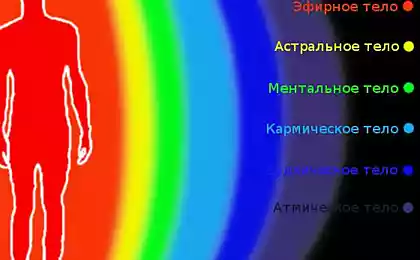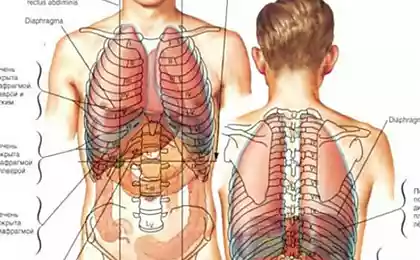613
Tony Robbins: the words affect the biochemistry of our body!
Changing the words, change the life"Over the last 35 years I had the good fortune to work with more than 50 million people, and noticed what power gives changing just one key word in communicating with a particular person: it instantly changes the self-perception of people and their behavior, respectively. I assure you, simply by changing your habitual vocabulary – the words you used to describe your feelings – you instantly change what you think, what you feel and how you live.
Four million seven hundred sixteen thousand five hundred eleven
This is the power of what I call Transformational vocabulary — the constant use of the right words to improve the quality of life, today and forever.
According to the encyclopedia of Compton, in the English language there are about 500 000 words. However, the working vocabulary of the average person consists of only 2 000 words, which is 0.5% of the total language. And how many words we use most often – how many of those words that make up our habitual vocabulary? For most people it is 200-300 words. Incredibly? (For comparison, in the works of John Milton there were 17,000 words of William Shakespeare – 24,000 words, of which 5 000 he used only once). Of the 500 000 words in General to describe the emotion being used as much as 3,000 words, and 2/3 of them describe negative emotions.
With such an amazing resource to Express their feelings and ideas why you need to embrace the poverty of your vocabulary? But for most people the problem is not the number of words that they know, and what words they use. Our brain works at high speeds, processing the values of things and helping us to make decisions as quickly as possible. As a result, we usually use the same set of words. Too often we use the short way – but often this emotionally impoverish themselves.
For two decades how do I give the public, in front of which to perform in different countries of the world, one simple task:make a list of emotions that you experience at least once a week.I give them five to ten minutes and asked not to write down the feelings that attend them occasionally (once a month or a year), but only those that they constantly experience.
The irony is that how many people would not attended my presentation – 2 000, or 30 000 – 90% of them record an average of 12 words, of which more than half are the negative emotions. That is, literally, of the 3,000 words in the language to describe the emotion most experience only 5-6 good feelings and bad feelings experiencing again and again. We feel happiness and excitement, then anger, suffering, sadness or even depression, for example.Have you ever tried to perform, what words would you usually describe your feelings? What do you think, is it possible that when we experience negative feelings, they can be emotionally transformed by hanging them verbal shortcuts?
The problem is that we usually don't consciously select words to describe their emotions. Any feelings that unsettle us, we used to call words that we unconsciously attached, and the point here is that the words that we attach to their experiences, become our experience. Words affect the biochemistry of the body. Using the word "devastated", you will generate a completely different biochemical effect than when pronouncing the phrase "I'm a little disappointed".
This effect is easy to see in talking with other people. For example, you can say "I think you're wrong" or "I think you are wrong" or "You're lying". What do you think, will there be a biochemical reaction in your body to be different in these three cases? The same thing happens when we speak with oneself, but, unfortunately, this effect, we understand and difficult.
I first realized the power of words, which we denote their emotions during a serious conversation, a dozen years ago. I shared the information with someone in hopes that it will help my two business partners and I to move from words to deeds and to prove the seriousness of our intentions. Unfortunately, instead of a conscientious attitude in response, the party tried to use this information to put pressure on us in order to enter into a agreement that was not in our favor.
To put it mildly, it was frustrating. After the meeting, the two partners began to discuss it, I could not help but notice how different words we have described these negotiations. I was upset and angry, but even in their own mess of feelings, I was literally amazed by the power of emotion to one of my partners. He was furious and was saying how he is furious at their behavior, he said, he had the feeling that we "gun to the head put". He sat red as a beet and barely controlled himself.
I tried to calm him down – the force of his emotion shocked me, as it was stronger than my anger and discontent. And I could not help but notice that my second partner, on the contrary, was, like, absolutely not touched by this situation. I asked him: "do You like and not upset at all. Do not get angry?"He replied: "not really. I'm a little unhappy with it." I didn't believe. «Dissatisfied?"— I asked. "Do you realize what these people have done?"He said: "Of course, I understand. Well, I'm a little annoyed". «Vexed?"— I asked. "What do you mean?» He said, "Yes, it should not being too upset by my feelings."
Seventy seven million seven hundred forty six thousand one hundred twenty nine
I was amazed that each of us has used words as different intensity – "pissed" vs "angry" vs "unhappy". How is it that I was “angry” and “upset”, one of my partner was “furious” and “furious”, and the other is just “unhappy” and “slightly annoyed”?
Me right the word “ annoyed ” annoyed. I thought, "What a stupid word to describe what these people did to us". I thought it was just stupid. I thought I would never say to describe my feelings... But on the other hand, I've never been able to be so calm in a situation of injustice. And I thought, "And if we could, how would I feel?"I would probably from the word "annoyed" laughed. What is it still stupid.
Is it possible that the words which we describe your experience, be this experience? Words have a biochemical effect? Over the past few weeks I began to notice, as they say certain people and how that enhances or softens their emotions.
And I decided to spend a 10-day experiment: first I had to define the emotions that I experience most often and most strongly of pisses me off, and then find a new word, which would have mitigated these feelings or even how ridiculous it was that would have wrung a habitual pattern of thoughts and feelings.
The first opportunity for this came after a long series of connecting flights, all of which were delayed. I arrived at the hotel at two in the morning, knowing that tomorrow at eight in the morning I have to speak. And now, 10 minutes I'm stuck at the reception, while the employee looking for my name in his computer at a speed which infuriated would be a snail.
I felt a build up inside the irritation, which had passed into the anger, so in the end I turned to him, feeling that boiling, and said, "I know that your guilt is not here, but now I just fall down and agree on any number you can find, because I already feel that I am "a few radosiwe"". Itself only use of the word "radosiwe" changed the tone of my voice, and the whole situation began to seem silly. Puzzled clerk looked at me and smiled widely. I smiled in response: my pattern was destroyed.The difference was between "I think you're wrong" and "you lie." The volcano of emotions that rose inside of me, then cold.
Could all be so simple? Just changing the usual words with which we describe their emotions, can we change the usual scheme of their feelings and thus their quality of life? Ten days lasted up to a month, and I can tell you without a shadow of a doubt that it was a life-changing experience. I do not want to say that there are no moments when you want to feel anger or even rage, but is it bad that this may be a conscious choice instead of blind habitual reactions?
Here is what I discovered: the key to changing your life, for the proper formation of their decisions and actions is a qualitative change in their emotional patterns. And the most serious tool which allows you to make the change most quickly is a conscious choice of words you use to describe your feelings. This way you give yourself a choice, instead of following the usual reactions.
I call this "Transformational vocabulary" because it gives you the power to change your life experience by decreasing the intensity of negative emotions to a level where they cease to control you. Conversely, it can be used to strengthen positive feelings, to get them even more fun.
If you think that sounds a little bit like a rant, isn't it? What is the meaning of word play?But try it on your experience, you will see that it works. What would your life be if you could take all the negative feelings and reduce their intensity? How much better would the quality of your life, if you could enhance each your positive experience? published
@ Tony Robbins
P. S. And remember, just changing your mind — together we change the world! ©
Source: vk.com/anthony_robbins_ru?w=wall-53757050_882
Four million seven hundred sixteen thousand five hundred eleven
This is the power of what I call Transformational vocabulary — the constant use of the right words to improve the quality of life, today and forever.
According to the encyclopedia of Compton, in the English language there are about 500 000 words. However, the working vocabulary of the average person consists of only 2 000 words, which is 0.5% of the total language. And how many words we use most often – how many of those words that make up our habitual vocabulary? For most people it is 200-300 words. Incredibly? (For comparison, in the works of John Milton there were 17,000 words of William Shakespeare – 24,000 words, of which 5 000 he used only once). Of the 500 000 words in General to describe the emotion being used as much as 3,000 words, and 2/3 of them describe negative emotions.
With such an amazing resource to Express their feelings and ideas why you need to embrace the poverty of your vocabulary? But for most people the problem is not the number of words that they know, and what words they use. Our brain works at high speeds, processing the values of things and helping us to make decisions as quickly as possible. As a result, we usually use the same set of words. Too often we use the short way – but often this emotionally impoverish themselves.
For two decades how do I give the public, in front of which to perform in different countries of the world, one simple task:make a list of emotions that you experience at least once a week.I give them five to ten minutes and asked not to write down the feelings that attend them occasionally (once a month or a year), but only those that they constantly experience.
The irony is that how many people would not attended my presentation – 2 000, or 30 000 – 90% of them record an average of 12 words, of which more than half are the negative emotions. That is, literally, of the 3,000 words in the language to describe the emotion most experience only 5-6 good feelings and bad feelings experiencing again and again. We feel happiness and excitement, then anger, suffering, sadness or even depression, for example.Have you ever tried to perform, what words would you usually describe your feelings? What do you think, is it possible that when we experience negative feelings, they can be emotionally transformed by hanging them verbal shortcuts?
The problem is that we usually don't consciously select words to describe their emotions. Any feelings that unsettle us, we used to call words that we unconsciously attached, and the point here is that the words that we attach to their experiences, become our experience. Words affect the biochemistry of the body. Using the word "devastated", you will generate a completely different biochemical effect than when pronouncing the phrase "I'm a little disappointed".
This effect is easy to see in talking with other people. For example, you can say "I think you're wrong" or "I think you are wrong" or "You're lying". What do you think, will there be a biochemical reaction in your body to be different in these three cases? The same thing happens when we speak with oneself, but, unfortunately, this effect, we understand and difficult.
I first realized the power of words, which we denote their emotions during a serious conversation, a dozen years ago. I shared the information with someone in hopes that it will help my two business partners and I to move from words to deeds and to prove the seriousness of our intentions. Unfortunately, instead of a conscientious attitude in response, the party tried to use this information to put pressure on us in order to enter into a agreement that was not in our favor.
To put it mildly, it was frustrating. After the meeting, the two partners began to discuss it, I could not help but notice how different words we have described these negotiations. I was upset and angry, but even in their own mess of feelings, I was literally amazed by the power of emotion to one of my partners. He was furious and was saying how he is furious at their behavior, he said, he had the feeling that we "gun to the head put". He sat red as a beet and barely controlled himself.
I tried to calm him down – the force of his emotion shocked me, as it was stronger than my anger and discontent. And I could not help but notice that my second partner, on the contrary, was, like, absolutely not touched by this situation. I asked him: "do You like and not upset at all. Do not get angry?"He replied: "not really. I'm a little unhappy with it." I didn't believe. «Dissatisfied?"— I asked. "Do you realize what these people have done?"He said: "Of course, I understand. Well, I'm a little annoyed". «Vexed?"— I asked. "What do you mean?» He said, "Yes, it should not being too upset by my feelings."
Seventy seven million seven hundred forty six thousand one hundred twenty nine
I was amazed that each of us has used words as different intensity – "pissed" vs "angry" vs "unhappy". How is it that I was “angry” and “upset”, one of my partner was “furious” and “furious”, and the other is just “unhappy” and “slightly annoyed”?
Me right the word “ annoyed ” annoyed. I thought, "What a stupid word to describe what these people did to us". I thought it was just stupid. I thought I would never say to describe my feelings... But on the other hand, I've never been able to be so calm in a situation of injustice. And I thought, "And if we could, how would I feel?"I would probably from the word "annoyed" laughed. What is it still stupid.
Is it possible that the words which we describe your experience, be this experience? Words have a biochemical effect? Over the past few weeks I began to notice, as they say certain people and how that enhances or softens their emotions.
And I decided to spend a 10-day experiment: first I had to define the emotions that I experience most often and most strongly of pisses me off, and then find a new word, which would have mitigated these feelings or even how ridiculous it was that would have wrung a habitual pattern of thoughts and feelings.
The first opportunity for this came after a long series of connecting flights, all of which were delayed. I arrived at the hotel at two in the morning, knowing that tomorrow at eight in the morning I have to speak. And now, 10 minutes I'm stuck at the reception, while the employee looking for my name in his computer at a speed which infuriated would be a snail.
I felt a build up inside the irritation, which had passed into the anger, so in the end I turned to him, feeling that boiling, and said, "I know that your guilt is not here, but now I just fall down and agree on any number you can find, because I already feel that I am "a few radosiwe"". Itself only use of the word "radosiwe" changed the tone of my voice, and the whole situation began to seem silly. Puzzled clerk looked at me and smiled widely. I smiled in response: my pattern was destroyed.The difference was between "I think you're wrong" and "you lie." The volcano of emotions that rose inside of me, then cold.
Could all be so simple? Just changing the usual words with which we describe their emotions, can we change the usual scheme of their feelings and thus their quality of life? Ten days lasted up to a month, and I can tell you without a shadow of a doubt that it was a life-changing experience. I do not want to say that there are no moments when you want to feel anger or even rage, but is it bad that this may be a conscious choice instead of blind habitual reactions?
Here is what I discovered: the key to changing your life, for the proper formation of their decisions and actions is a qualitative change in their emotional patterns. And the most serious tool which allows you to make the change most quickly is a conscious choice of words you use to describe your feelings. This way you give yourself a choice, instead of following the usual reactions.
I call this "Transformational vocabulary" because it gives you the power to change your life experience by decreasing the intensity of negative emotions to a level where they cease to control you. Conversely, it can be used to strengthen positive feelings, to get them even more fun.
If you think that sounds a little bit like a rant, isn't it? What is the meaning of word play?But try it on your experience, you will see that it works. What would your life be if you could take all the negative feelings and reduce their intensity? How much better would the quality of your life, if you could enhance each your positive experience? published
@ Tony Robbins
P. S. And remember, just changing your mind — together we change the world! ©
Source: vk.com/anthony_robbins_ru?w=wall-53757050_882























